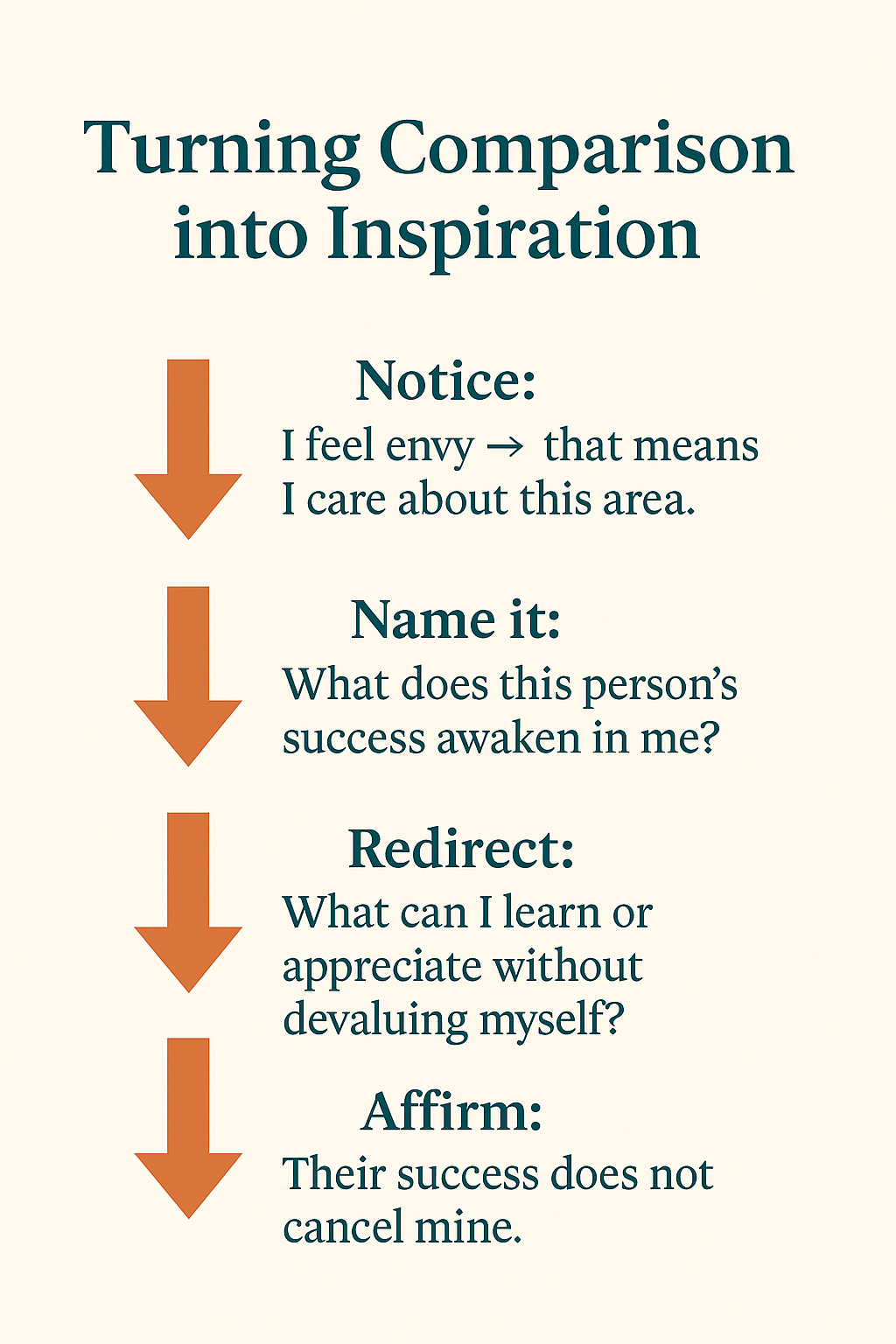Camilo Henríquez
●
October 17, 2025
By Camilo Henriquez — English & Spanish-speaking Psychologist in Aarhus, Denmark
Do you often find yourself thinking, “I’m not as successful as others,” or “They seem happier than me”?
This is very classic and normal these days. As a psychologist in Aarhus working with internationals across Europe, I often hear these thoughts from clients. Comparison is natural, but when it becomes constant, it can quietly drain your confidence, joy, and motivation.
In this article, we’ll explore why we compare ourselves, the harm it can cause, how it can sometimes help, and practical ways to find balance.
Self-comparison is part of being human. From an evolutionary point of view, our brain uses it to understand our social environment; to learn, adapt, and survive.
But in today’s world, especially with social media, this mental habit gets overstimulated. We see other people’s best moments daily and unconsciously start measuring our entire lives against them.
“We tend to judge our sense of self-worth against the outward appearance of others. We only see others’ external achievements or behaviors, but compare them to our internal feelings and insecurities, which makes the comparison unfair and useless.”
If you notice this pattern, know that it doesn’t mean something is wrong with you. It’s a sign of how your mind tries to make sense of belonging and worth.
Uncontrolled comparison can harm your emotional well-being and relationships. Common effects include:
Many of my clients in therapy, especially internationals living in Denmark, experience these patterns when adjusting to a new culture, career, or social circle.
Comparison isn’t always bad. In fact, when used consciously, it can become a form of self-awareness and growth.
The difference lies in your mindset. Instead of asking, “Why am I not like them?”, ask:
“What can I learn from this person that helps me grow?”
Here are five mindfulness-based and CBT-informed strategies I teach in therapy sessions and mindfulness workshops:

Self-comparison is not a flaw — it’s an opportunity for awareness.
When we stop fighting it and start listening to what it reveals, comparison transforms into self-understanding.
“You can admire others without abandoning yourself.”
If you’d like to explore how these ideas can support your mental health, you can learn more about my services or read related posts in the Self-Help Blog, such as:
What is one quality you admire in others that you could practice today?
Camilo Henriquez is a psychologist and mindfulness instructor based in Aarhus, Denmark, offering psychotherapy in English and Spanish for internationals across Europe. His work integrates Cognitive Behavioural Therapy (CBT) and Mindfulness-Based Interventions to promote self-awareness, balance, and well-being.
Great! Please fill this short form and I will get back to you within 48 hours.